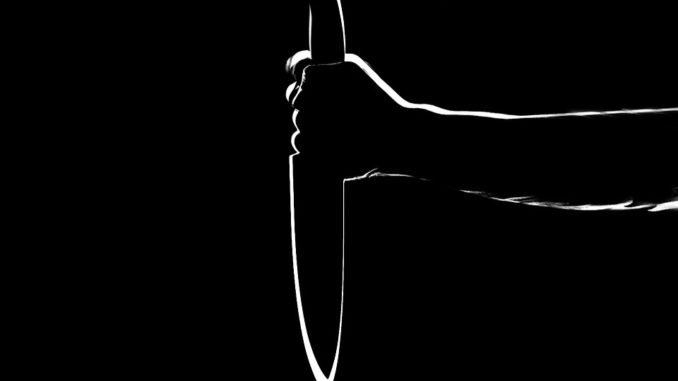
There were 1,072 seizures of weapons in schools the last financial year, up from 831 in the previous 12 months, according to data obtained by the Press Association under freedom of information laws
The data showed that thousands of pupils, including a child aged just four, have been caught carrying weapons into school.
Police officers have confiscated knives, and other weapons – including knuckle-dusters, swords, a machete, a meat cleaver and a gun, from schoolchildren, an investigation has found.
There were a further 311 incidents, between April and August this year, information with relevant data from 29 police forces in England and Wales showed.
Commenting on the FOI analysis by the Press Association, Kevin Courtney, joint general secretary of the National Education Union, said:
“It’s important to acknowledge two realities at the same time – that most classrooms are very safe, and the large majority of schools have very effective behaviour policies, but that for some students, knives, other weapons and the fear of violence are part of their daily lives. This is not acceptable for those young people and there is much more we must do across the public services.
“Schools form just one part of a multi-agency approach to reducing youth crime and the exposure of young people to violence, and those agencies all need support. Police forces need enough capacity to support schools through Safer School Partnerships. We also need early intervention approaches which can only be achieved through collaboration between social workers, youth workers, and pastoral leads in schools.
“Cutting and radically reducing the scope of the youth service and their presence in local communities was really short sighted, and makes it harder to get the response right. Youth work is based on a model of empowerment, education and equal opportunity for young people, which is why it is so vital. Both the education and youth work services need to be flexible enough to respond to the individual needs of young people who are affected by criminal activity or social exclusion. Current government approaches to the curriculum and to tests and qualifications do not enable this – it is leading too many young people to feel like failures, in school, with hugely negative consequences.
“We must also sound a warning signal about the rising levels of child poverty, about which the government is simply in denial, even when challenged by the UN. Poverty affects young people’s self-esteem, their hope for the future and their access to opportunities that can widen horizons. Cutting services like Sure Start, youth centres, community centres and libraries directly removes the ability of communities to support local children and young people.
“A cross department government strategy to ending child poverty and doing more to tackle racism needs to be part of the solutions we seek, when we analyse why some students are bringing weapons to school.”
Don’t forget to follow us on Twitter, like us on Facebook, or connect with us on LinkedIn!


Be the first to comment